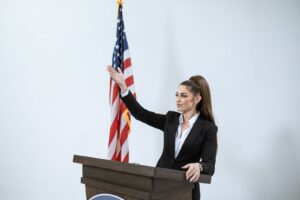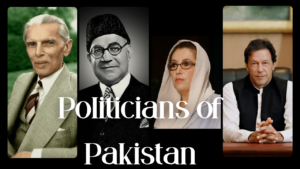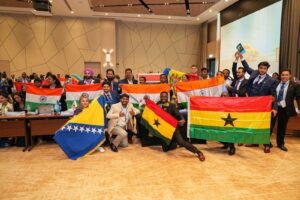There is much blending of the borders between politics and diplomacy. Today, diplomacy has a primarily functional definition in the broadest sense.UK Replica offers a variety of 1:1 best duplicate rolex GMT-Master II, high quality fake rolex GMT-Master-II. For instance, Americans prefer to refer to it as “just one tool in the toolbox,” with the toolbox being something bigger termed “foreign policy.”
The diplomatic tool is integral to discussions, which often occur after a conflict has begun, over, or, in highly unusual circumstances, even before it has begun. This is different from the traditional understanding of diplomacy, which, according to one of its supporters, the historian Sasson Sofer, diplomats served as “the courtiers of civilization,” combining the means and purposes of power in a way closer to statecraft. They watch over the signing of cease-fires, truces, and peace treaties; they are the advisors of peaceful relations. Suggesting that diplomats exemplify the finer aspects of human nature is cliched. However, they are the keepers of the notion of an international society and the defenders of international principles.
What Is the Concept of Politics and Diplomacy?
1) Politics
Politics is defined as a process in which opposing parties stake out positions to win support for their respective positions of power and interests. Conflicts over the allocation of material goods are the main focus of politics. The adoption of progressive taxes and welfare programs by a relatively centralized state and an electoral political system based on a traditional left-right ideological division characterize politics in the post-World War II era, which may be best summarized in this way.
2) Diplomacy
Diplomacy is the art, practice, and methods of conducting international contacts in a way that protects one’s interests and advances one’s political, economic, cultural, or scientific ties while upholding goodwill collectively referred to as diplomacy.
The Vienna Convention on diplomatic relations (1961) codifies the guidelines for the exchange and treatment of ambassadors between governments and promotes the growth of amicable ties between countries, regardless of how their governmental and social structures differ. It has become essential to managing international relations and guarantees that diplomats may carry out their duties free from interference from the host country.
Political Leadership Vs. Diplomats
History tells us many things. Over many years, political leadership and diplomacy have developed into separate disciplines. Even though both politicians and diplomats may exhibit diplomacy, the two jobs are fundamentally distinct. For this division, the following are the valid differences;
Politicians are dependent on local election systems or other power sources. This indicates that they pay attention to local incidents and local supporters and stakeholders have an impact on their choices. In contrast, diplomats work for the government. Only high moral and professional standards will determine how well they perform.
Political leaders lack diplomatic training. Rhetoric benefits politicians. They tend to focus on the expressive, sentimental, dramatic, moral, or emotional components of communication. They seek “quick fixes,” “wins,” and the option to “back off.” Diplomats gain from reliability, correctness, tolerance, humility, and tact. To reach a stance, that best meets their interests while also being acceptable to the opposing side, they look for pragmatic, sensible, and reasonable solutions.
Political leaders are given unjust talents that are more appropriate for psychologists, intelligence agents, and used car salesmen, such as the capacity to understand a partner’s intentions purely via face-to-face conversations. Such ideas undermine the fundamentals of diplomatic trust, which is developed over many years by diplomats.
Diplomats are aware that greetings, facial expressions, speech tones, eye contact, movements, and body position cannot reveal trust or purpose. Negotiation is influenced by culture. Eye contact, smiles, and aggression can all be influenced by culture. Through tacit knowledge, experience, and universal communication or procedure, diplomats get beyond such discrepancies. For a diplomat, trust is founded on the notion that a partner can keep their word and have the backing necessary to carry out commitments. Only with time and continuous engagement can one develop this trust.
Also, Read About How to Become An Effective Politician?
What Politics Includes?
Politics in today’s world includes the following;
- The actions conducted by governmental entities as a body for enacting and enforcing laws.
- Policy and decision making
- Enforcing and executing policies
- The political parties and leaders’ actions are all directed at achieving control and authority.
Functions of Diplomacy
The following are the Functions of Diplomacy;
- Resolution of the Debate.
- Encourage cooperation and involvement amongst nations.
- Assists in mediation and intervention
- It makes the creation of foreign policy straightforward.
- Use diplomatic techniques to demonstrate global peace.
Main Differences Between Politics and Diplomacy
Understanding the basic contrasts between politics and diplomacy is essential for managing both internal and external affairs in a complex and interconnected world. The following are the main differences between politics and diplomacy;
1) Definition
Politics is defined as the pursuit and use of power inside the internal framework of a country. This includes political activities, behavior, and tactics. It entails making decisions on governance and public affairs as well as formulating and putting into practice policies.
However, diplomacy is the art and practice of governing international relations between nations. To resolve matters of shared interest or concern. It emphasizes dialogue, negotiation, and finding common ground.
2) Purpose
The purpose of politics is to gain and hold onto power, pursue certain policy agendas, and serve the needs of citizens or political supporters inside the boundaries of a nation.
On the other hand, the purpose of diplomacy is to promote mutual understanding between nations, sustain stable ties, and settle disputes between various countries. On a global scale, it aims to foster collaboration, cultivate trust, and defend national interests.
3) Time Framework
Politics includes election cycles and present public demands frequently impact political choices and actions, making them vulnerable to short-term concerns.
On the other hand, the pursuit of diplomacy is often defined by a long-term perspective, as establishing trust and resolving international problems can take time and perseverance.
4) Subject Matter
Politics involves domestic topics, including governance, public policy, and socioeconomic concerns within a nation, which often fall within the purview of politics.
Diplomacy deals with foreign policy, international treaties, economic agreements, and international collaboration which acts on a global scale.
5) Players
The players of politics are elected officials, government representatives, and political parties who influence and carry out national policy.
On the other hand, negotiations and discussions with foreign governments and international organizations are led by diplomats, ambassadors, and representatives of a country’s foreign ministry.
6) Process of Decision-Making
Political decisions are frequently influenced by a combination of ideological convictions, popular opinion, party interests, and the desire to win elections. Political leaders must take into account the preferences of their supporters and may emphasize short-term benefits to keep support.
On the other hand, foreign policy goals, national interests, and long-term factors are carefully examined before making diplomatic decisions. When making judgments, diplomats consider how they could affect foreign relations and work to achieve solutions that are consistent with the nation’s larger strategic objectives.
7) Use of Force
Politics includes choices on military interventions or acts to defend national sovereignty and security. Politics also includes the use of force as an instrument of national policy.
On the other hand, diplomacy emphasizes using diplomatic methods to settle disputes and conflicts. To promote an atmosphere of collaboration and understanding, it emphasizes communication, negotiation, and mediation as alternatives to armed action.
Learn Politics and Diplomacy with the Best Politicians
Politics and diplomacy are interdisciplinary but different disciplines, but the purpose of both is to serve the state in the best of its interest. Politicians are the people elected through local elections, while diplomats take years to learn diplomacy to perform the art of beneficial relations with the rest of the world. Best Politicians is an international platform helping people of all ages in the world to participate in the international conference to seek the experience of a politician and diplomat and enhance their knowledge. This helps youth in deciding their career either to be a politician or a diplomat.
Register Yourself With The Best Politicians
Conclusion
In conclusion, given their proximity to one another in the field of international relations, politics, and diplomacy represent different strategies and goals. While diplomacy places a higher priority on dialogue, negotiation, and the development of international understanding between states, politics frequently focuses on the pursuit of power, popular support, and the implementation of domestic goals.
While political leaders are crucial in establishing policies and advancing the interests of their countries, diplomats put in endless hours to promote goodwill, resolve disputes, and forge international ties. Maintaining global stability, promoting peaceful solutions, and increasing collaboration on the international scene all depend on understanding and respecting the distinctions between politics and diplomacy.
FAQs
What is the difference between a politician and a diplomat?
The state has dominion over diplomats. Diplomats are brought in to suggest a path forward when politicians restrict the interests of the state. Diplomats are tasked with softening the edges of a strong stance when politics demand it. Diplomats are intended to investigate options, typically indirect ones, to forward the objectives that a politician has proposed as a reactive or passive policy. A more direct but ineffective policy would not succeed.
What is the role of diplomacy in politics?
The goal of diplomacy is to advance the interests of the country, nation, or group it represents on a global scale. In order to do this, diplomatic action seeks to boost the advantages of the group without facing the risks and expenses of using force and, most importantly, without arousing hostility.
What is the difference between diplomacy and international politics?
International politics includes the struggles we encounter, power conflicts, and the chances and challenges for relations among peoples, societies, states, and organizations. On the other hand, diplomacy includes the diplomatic activities between states, foreign organizations, and foreign counterparts.
Bokep Indonesia Terbaru Bokep Jepang Jav Bokep ukthi jilbab GOBETASIA GOBET GOBET SLOT BOKEP INDO BOKEP INDONESIA Bokep Indonesia Terbaru SLOT GACOR SLOT GACOR slot maxwin slot gacor demo 1000 slot gacor gobet slot situs slot online gacor terpercaya GOBETASIA GOBETASIA slot gacor SLOT GACOR SLOT GACOR GOBETASIA




